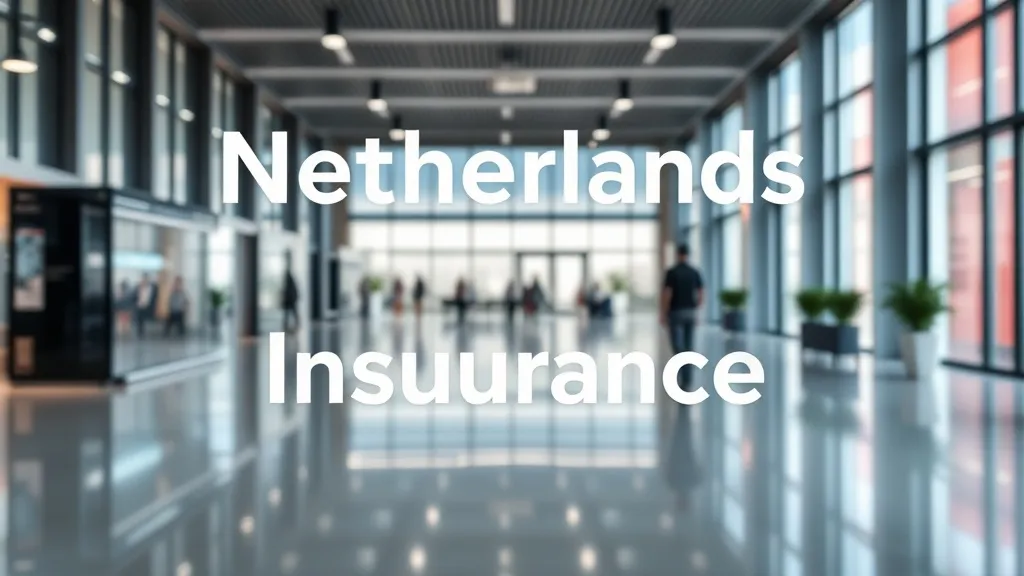Netherlands Insurance Foreigners: Your Guide to Health Coverage in the Netherlands
Finding the right Netherlands health insurance for foreigners can feel overwhelming—especially when you’re juggling BSN registration, residency paperwork, and settling into a new country. You’re not alone. Interestingly enough, the Netherlands ranks in the global top 10 for healthcare efficiency and expat satisfaction[3]. But what does that mean for you?
Here’s the thing: every resident, including non-EU citizens, must secure private basic health insurance within four months of arrival (penalties apply otherwise). In this guide you’ll learn exactly what’s covered, how much it costs (around €140/month), and step-by-step registration tips. Plus, we’ll cover special cases like undocumented migrants and new government policies for 2025. Let’s dive in.
Table of Contents
Understanding Mandatory Health Insurance in the Netherlands
Hook: You might be wondering why private insurance is mandatory when the Dutch government already funds healthcare.
Context: The Netherlands operates a universal system delivered by private insurers. That said, everyone residing in NL must purchase a basic package.
Detailed Explanation: Basic coverage includes GP visits, hospital admissions, maternity care, and emergency services. Premiums start at about €120–€140/month[3]. Co-payments apply for certain treatments, but you’re covered against catastrophic medical bills.
Real Example: Ana, an expat teacher from Brazil, registered within two months of her arrival. She chose a package with a €385 annual deductible and pays €130/month. When she sprained her ankle, her treatment cost just €10 out of pocket.
“The Dutch health insurance system’s mandatory private insurance model ensures broad coverage and high patient satisfaction, especially among expats.” – OECD Health Report 2025
Actionable Takeaway: Register for Health Insurance for Foreigners: Global Guide within four months to avoid fines up to €374/year.
Step-by-Step: Registering for Dutch Health Insurance
Hook: Think of registration as your gateway to peace of mind—not just paperwork.
Context: After BSN (Burger Service Number) registration, insurers require basic personal data and your BSN.
Detailed Explanation:
- Gather documents: passport copy, residence permit, BSN proof.
- Choose insurer: check premium, deductible, and coverage scope.
- Apply online or via broker: fill in details, sign digitally.
- Receive policy and payment mandate: set up direct debit.
- Keep confirmation letter: you’ll need it for employers and sometimes landlords.
Real Example: Jack from Canada used a broker to compare Zilveren Kruis, VGZ, and CZ. He saved €8/month by choosing a digital-only plan with a €385 deductible.
Expert Quote: “Registering early not only avoids fines but also grants immediate access to crucial care—don’t wait until you’re sick,” advises IRM Hanssen, healthcare policy researcher[1].
Actionable Takeaway: Set a calendar reminder for three months post-arrival and start shopping around.
Coverage Options and Cost Breakdown
Hook: Not all plans are created equal—so where should you invest your euros?
Context: Basic insurance covers essentials, but add-ons can fill gaps like dental, physiotherapy, and alternative therapies.
Detailed Explanation:
- Basic Package (€120–€140/month): GP, hospital, maternity, emergency care.
- Supplementary Cover (€10–€30 extra): Dental care for adults, physiotherapy, mental health support.
- Deductible Options: Standard (€385) or lower/higher amounts to adjust premium.
Costs vary by insurer. Digital plans tend to be cheaper but limit service points. Meanwhile, full-service plans grant wider hospital networks.
Real Example: Priya from India needed annual dental check-ups. A supplementary dental add-on at €15/month saved her €200/year in treatments.
“Despite legal entitlements, undocumented migrants face significant barriers to accessing healthcare in the Netherlands, highlighting a gap between policy and practice.” – IRM Hanssen[1]
Actionable Takeaway: List your expected treatments (e.g., dental, therapy) and compare add-on costs before choosing.
Special Considerations: Undocumented Migrants & Discrimination
Hook: What happens if you don’t have papers? Healthcare doesn’t always wait for bureaucracy.
Context: Undocumented migrants are legally entitled to medically necessary care but face real-world hurdles.
Detailed Explanation: Hospitals cannot turn away emergencies, but non-emergency treatments often require proof of insurance. NGOs like Dokters van de Wereld bridge the gap, arranging free consultations.
Data Point: In 2024, 18% of foreign-born residents reported discrimination in public spaces—the highest in the EU[2]. Such bias can deter migrants from seeking care.
Real Example: Salim, an asylum seeker, connected with a local NGO that helped him get a follow-up for his asthma without upfront fees.
Actionable Takeaway: If you’re undocumented, contact organizations like Pharos or Doctors of the World for guidance.
Future Trends & Policy Changes in 2025
Hook: Policy tweaks can impact your wallet and access—stay one step ahead.
Context: The Dutch government is considering funding cuts for uninsured care and rolling out a “discrimination test” for public policies.
Detailed Explanation: Proposed changes may tighten eligibility for free care, affecting unemployed migrants. Digital health tools (apps for claims, e-prescriptions) will become more widespread, speeding up reimbursements.
Expert Insight: OECD’s latest review predicts that streamlined digital processes could reduce claim wait times by 30% by late 2025.
Actionable Takeaway: Keep up to date with insurer communications and sign up for e-health portals as they roll out.
FAQ
- Do I need health insurance if I’m only in the Netherlands for a few months?
- Yes. Anyone registered in the BRP for longer than four months must buy coverage. Short-stay visitors often need travel insurance instead.
- Can I use my home country’s health card?
- EU citizens can use the EHIC for temporary stays. Non-EU nationals must purchase Dutch insurance or prove equivalent coverage.
- What if I switch jobs?
- Your health insurance stays with you. Inform your insurer of any address changes or employer details within 30 days.
- How do I cancel my policy?
- Cancellations typically occur at year’s end with one-month notice. Check your insurer’s terms for specifics.
- Can I get refunds for unused premiums?
- Generally no. Premiums cover risk pooling, so unused months aren’t refundable.
Conclusion
Finding the right Netherlands health insurance for foreigners doesn’t have to be a headache. We covered the mandatory basics, cost breakdowns, registration steps, special cases for undocumented migrants, and upcoming policy trends. Now you know what to do:
- Secure your BSN and register within four months.
- Compare basic and supplementary plans based on your needs.
- Keep an eye on new digital tools and policy updates.
Remember, having solid coverage means peace of mind—whether you’re exploring Amsterdam’s canals or settling into a Dutch village. Stay informed, act early, and you’ll be well-protected. Good luck on your journey!





